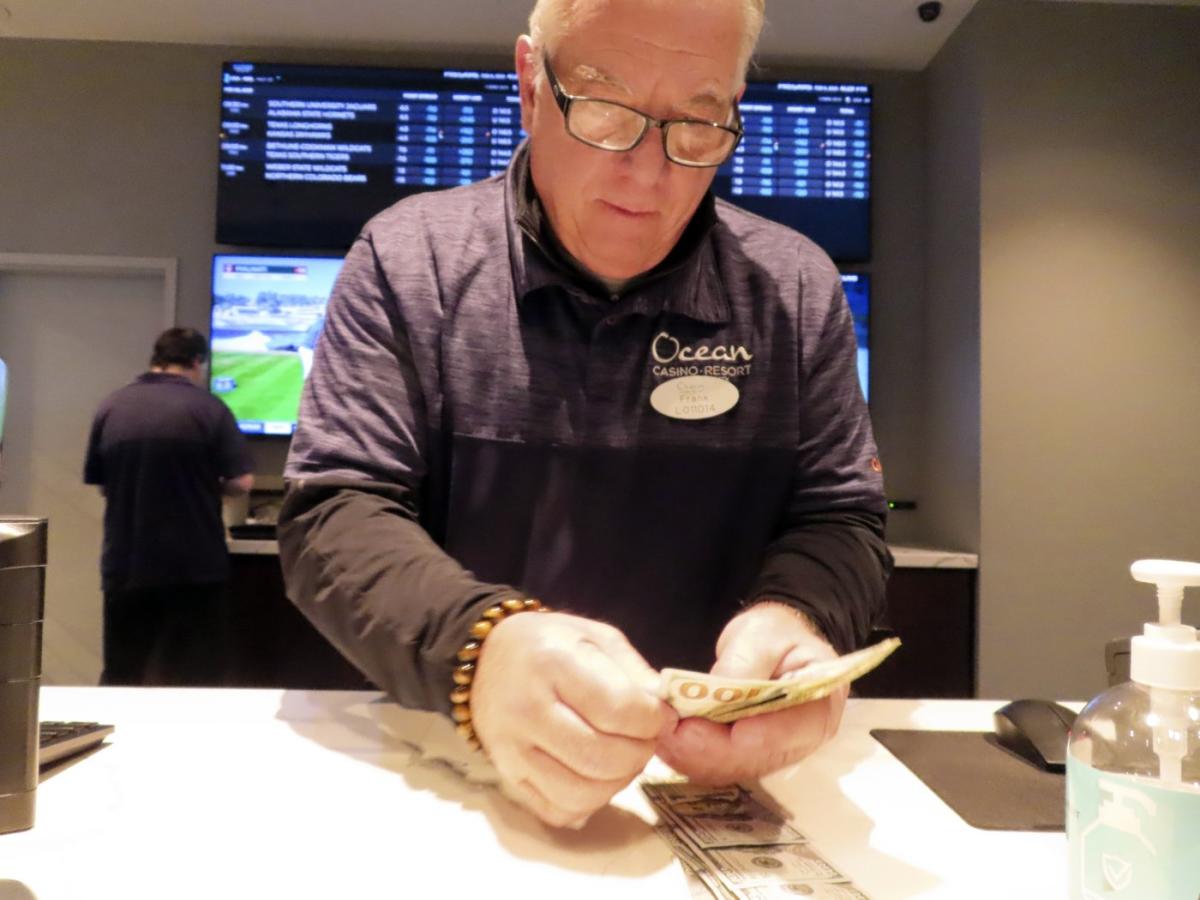Gambling
Plain old bad luck? New Jersey sports betting revenue down 24% at casinos, and 9.5% overall in June

ATLANTIC CITY, N.J. (AP) — New Jersey’s casinos saw their sports betting revenue decline by nearly 24% in June, and sports betting revenue overall in the state declined by 9.5%, according to figures released Tuesday by state gambling regulators.
The New Jersey Division of Gaming Enforcement reported that the nine casinos collectively saw their sports betting revenue decline by 23.9% in June compared with a year earlier.
When the three horse tracks that take sports bets are included, the overall decline in such revenue for the state was 9.5%.
Total gambling revenue in the state, including internet gambling and money won from in-person gamblers, was $491 million, up 7.4%.
New Jersey was the state whose court challenge to a federal ban on sports betting in most of the country resulted in a 2018 ruling by the U.S. Supreme Court clearing the way for any state that wants it to offer legal sports betting.
Since then, New Jersey has been among the nationwide leaders in sports betting revenue.
But in June, according to the New Jersey Division of Gaming Enforcement, sports betting generated $27.1 million in revenue for the casinos after winning bets and other expenses were paid out. With horse tracks included, the total revenue figure was $60 million.
“At first glance, a decline of nearly 24% in sports betting revenue for Atlantic City’s casino operators is a bit surprising given recent positive performance from that sector,” said Jane Bokunewicz, director of the Lloyd Levenson Institute at Stockton University, which studies the Atlantic City gambling market.
But she noted that not all the casinos or racetracks saw declines, adding that the total amount wagered during the month was actually a bit higher than average for June.
“It seems likely that the decline in sports betting revenue this June is a function of odds set by the oddsmakers, the bets made by the public, and the outcomes of live events,” she said. “At the end of the day there will always be some variability by nature in gambling activity.”
Mark Giannantonio, president of Resorts Casino and of the Casino Association of New Jersey, was among industry officials attributing the decline in sports betting revenue to “mainly poor luck” in June.
Resorts Digital, his casino’s online arm affiliated with the DraftKings sportsbook, was down 43.3% in June, to $14.3 million in sports betting revenue. The physical Resorts casino saw its sports betting revenue decline by 34% to just over $99,000.
The Ocean Casino swung from $82,000 in sports betting revenue last June to a loss of $18,725 this June.
And Monmouth Park Racetrack, near the Jersey Shore in Oceanport, saw a 37% decline in sports betting, to $904,000.
Other casinos saw better-than-expected sports betting revenue in June, including Bally’s, which took in almost $1.9 million, up from $351,000 a year earlier, an increase of over 440%. Hard Rock nearly doubled its sports betting revenue in June, to $4.6 million.
In terms of overall gambling revenue, Borgata won $110 million, up 5.7%; Golden Nugget won $64.2 million, up nearly 20%; Hard Rock won $63.7 million, up 24.4%; Ocean won $39.6 million, down 0.4%; Tropicana won $38.5 million, up 30.7%; Bally’s won $24.6 million, up over 27%; Caesars won $19.2 million, down over 11%; Harrah’s won $19.1 million, down 8.8%, and Resorts won $15 million, down 2.3%.
But those figures include internet and sports betting money, much of which must be shared with parties including sports books and technology platforms, and is not solely for the casinos to keep.
For that reason, the casinos consider money won from in-person gamblers to be their core business. Only two casinos — Ocean, and Hard Rock — won more from in-person gamblers this June than they did in June 2019, before the coronavirus pandemic hit. This remains a source of continuing concern for Atlantic City’s casinos and their parent companies.
___
This story has been corrected to show that the sports betting revenue decline was nearly 24% at casinos, but only 9.5% when horse tracks are included.
Wayne Parry, The Associated Press


)






